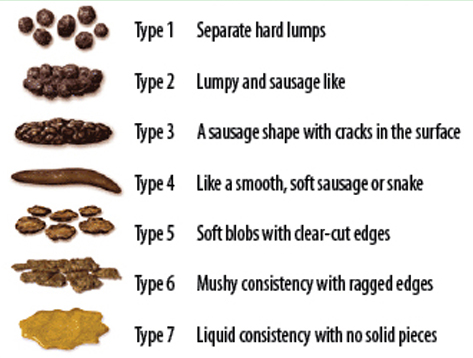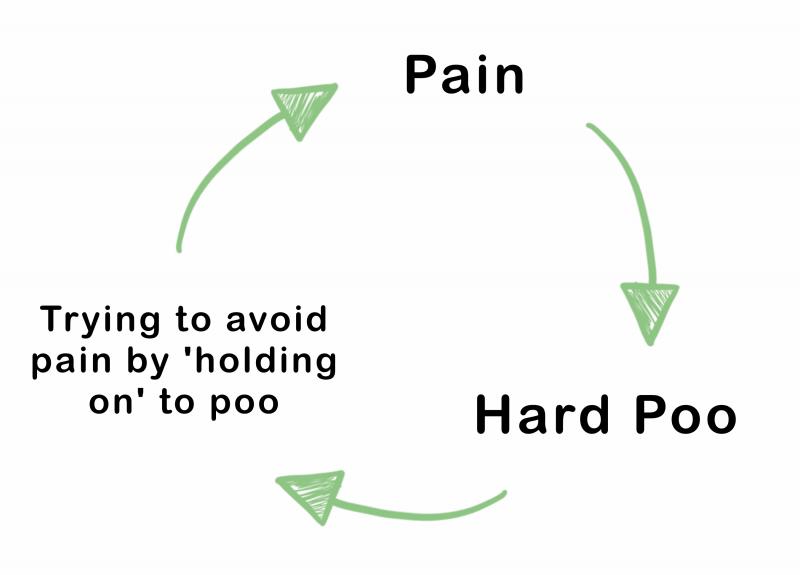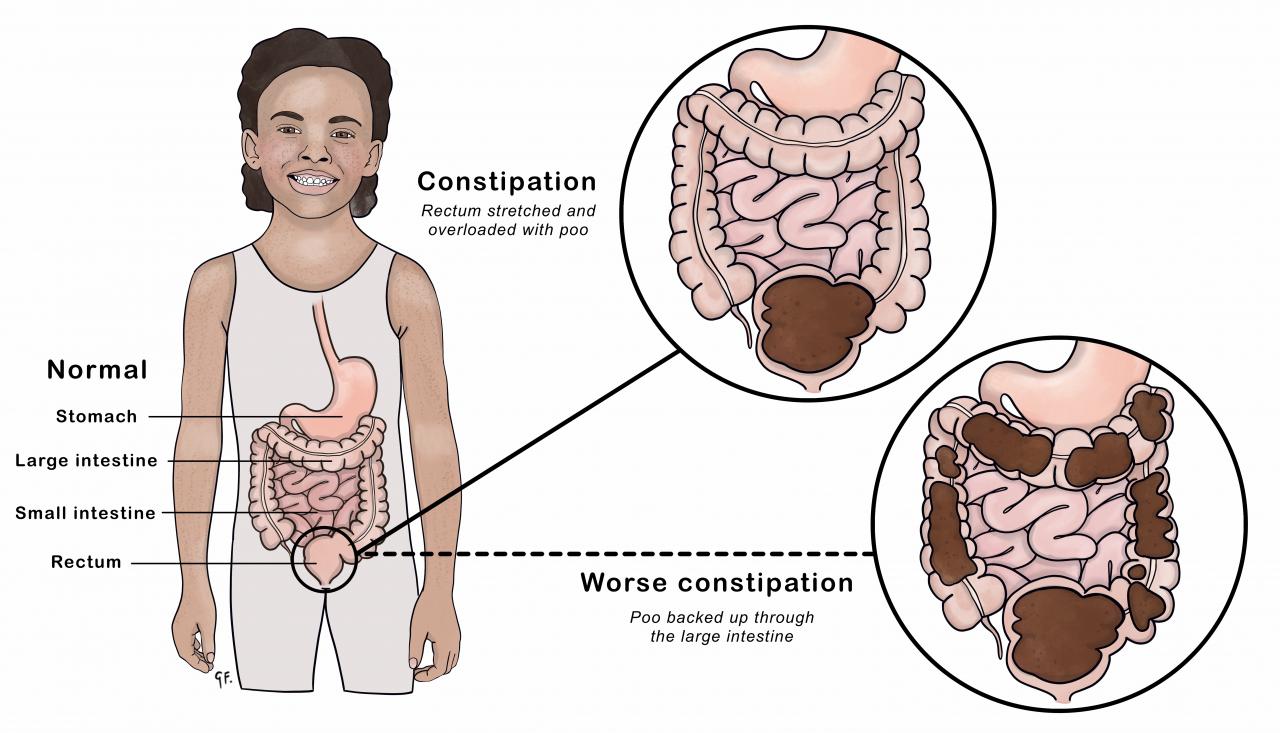Constipation
Constipation
Constipation is when your child has hard poo and doesn't poo for 3 or more days. It's a common problem in childhood.
Key points about constipation
Making sure your child has plenty of water to drink, and enough fibre in their diet, can help prevent constipation.
- constipation is when your child has hard, infrequent poo
- it is a common problem in childhood
- constipation often starts after 1 hard poo has caused pain and so your child has tried to avoid pain the next time by 'holding on' to the poo, resulting in a vicious cycle
- increasing the fluid your child drinks and the amount of fibre in their diet can help prevent constipation
- laxatives are often necessary - they work by making the poo softer and easier to poo out
- sitting on the toilet regularly is important
- children often need laxatives for months and sometimes years to manage the problem
Sitting on the toilet regularly is important.
What is normal poo?
There is a wide range of normal pooing for breastfed babies. They may poo as often as after every feed or as infrequently as once in 10 days. Breastfed babies' poo is mustard yellow, soft and can look like it has seeds in it.
Most bottlefed babies and older children will have a poo every day or every second day. Some have more than one poo a day. The poo should be like a soft sausage - like types 3 and 4 in the diagram below.

What is constipation?
If your child of any age has firm, hard or painful poo, they are likely to be constipated. If children are not breastfeeding and are pooing less than every 3 days, they are likely to be constipated.
What are the signs and symptoms of constipation?
Your child may be constipated if they have some of the following:
- large and hard poo
- hard 'pebble-like' poo
- no poo for 3 or more days
- pain or crying when having a poo
- bright blood around the poo due to tears in the skin around the anus (anal fissures)
- tummy pain
- urinary tract infections, wetting pants (urine incontinence), bedwetting - constipation can increase the risk of these
- liquid poo that may leak out at times in between harder poo
- soiling accidents (encopresis)
What causes constipation?
Constipation in children is common.
There are many possible reasons for your child's constipation. Often, it is several things:
- not drinking enough water
- weaning from breastmilk to formula
- starting solids
- not having enough fibre (vegetables, fruits, whole grains) - ready-made food and takeaways are low in fibre
- not doing much physical activity
- not eating and drinking as much as normal, for example when your child is unwell
- a natural tendency to having slower gut movement
Toileting habits are important. Your child can become constipated if they:
- ignore the urge to do a poo
- don't let all the poo come out when going to the toilet
- don't sit on the toilet regularly
Take a look at this video by the Pediatric Gastroenterology Clinic, Primary Children's Hospital, US, for more information.
How can constipation cause a vicious cycle?
Constipation often starts after 1 hard poo has caused pain. The natural response to a painful experience is to try and avoid or escape it in the future. So, the next time your child feels the urge to poo, they 'hold on' in an attempt to avoid passing another painful poo. This results in the poo becoming firmer, larger and even more painful to poo out and your child becomes even more reluctant to poo in the future.
This leads to a vicious cycle:

The key to stopping this cycle is making the poo soft again.
Find out what you can do about your child's constipation
What if constipation continues for a long time?
If constipation continues for a long time and all the poo doesn't come out, the bowel can become overloaded and stretched. The overloaded and stretched bowel means the feeling of needing to do a poo is lost and can cause soiling accidents.
Could childhood constipation be due to an abnormal bowel?
Constipation is hardly ever due to an abnormal bowel. Most bowel problems show up in early life and are diagnosed within the first few months. Occasionally, constipation in children can be due to coeliac disease.
If your child passed meconium (the green/black poo newborn babies pass) within 24 hours of birth, it is unlikely your child has a bowel problem causing constipation.
Your doctor may suggest your child sees a specialist nurse or doctor if:
- your child's constipation is proving difficult to treat after standard treatments or,
- your family doctor thinks there may be another condition causing your child's constipation
This page last reviewed 07 March 2022.
Do you have any feedback for KidsHealth?
If you have any feedback about the KidsHealth website, or have a suggestion for new content, please get in touch with us.
Email us now
